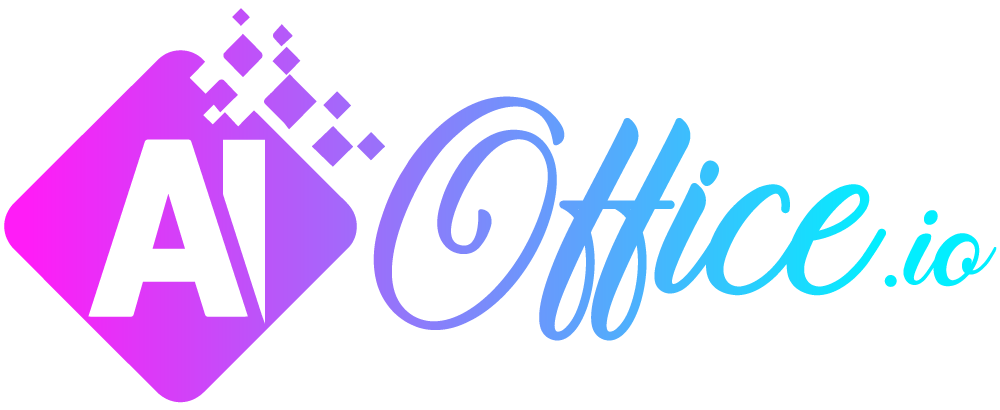Top Quantum App Management Software

Admin
AI Research Analyst | 17 December 2024Table of Content












With the progress of quantum computing, it has become essential to have advanced technology tools to develop and manage quantum applications. In this article, we will explore some of the top Quantum App Development Software Platforms that are defining the future of quantum technology.
Qiskit
It is an open-source tool software used to work with quantum computers. It allows users to create and run quantum circuits, visualise them, and perform other tasks. The software has a large community; users can find tutorials and forums for assistance.
Pros Of Qiskit
- The software tool is free for anyone to use and is highly regarded for its collaborative features.
- Its interface is user-friendly and suitable for beginners in programming and quantum computing. A tutorial is available to help users learn.
- It provides us with multiple tools to perform different tasks. For example, you can build circles or analyse the results.
Drawback Of Qiskit
Qiskit is user-friendly, but quantum computing is a challenging field. Therefore, beginners may find it difficult to start their quantum computing journey using this software.
It may also be a long and computationally extensive process when running simulations or complex circuits, which may not be a possibility for a lot of users.
It is also worth noting that some features of Qiskit are only available with actual quantum computers, which are expensive.
Project Q
This tool is widely used for quantum app development and considered the best for researchers and developers. It allows you to create, run, and test quantum algorithms. It is also beginner-friendly.
Features Of Project Q
It is very simple to write quantum programs than other software. You can easily create quantum circuits, which are like building blocks of quantum algorithms.
This software supports various backends, allowing you to run your quantum program on multiple quantum computers or simulators.
You can also integrate different tools and technologies into your project, which is compatible with other quantum software and hardware.
Pros Of Project Q
- It is a free tool, so many people like and can use it. This way, you can easily collaborate and share your ideas with different communities.
- You can perform different experiments as it allows you to run your programs on different quantum computers and simulators.
- Its framework is user-friendly, so beginners can easily understand its interface.
Drawback Of Project Q
- Project Q is easy to understand, but quantum computing remains complex, even with this interface. Some aspects may take time to understand.
- Running complex quantum programs might need plenty of computational resources, which may not be accessible to everybody.
- Currently, there are several quantum computing frameworks available. While Project Q is effective, it has fewer users than other frameworks. It means there are fewer sources & services available to help users.
Strawberry Fields
It is an open-source library used to run & simulate various quantum programs. It is considered a top Quantum App Development software because it doesn't require much practice.
Developed by Xanadu company, its primary goal is to make quantum photonic computers easily accessible for beginners and professionals.
Features Of Strawberry Fields
In this software, you can easily write programs in Python using the simple language "blackbird". You can simulate quantum circuits on your computer even without quantum hardware.
If you have Xanadu's quantum computer, it's a plus point because the programs work perfectly on real hardware. The software has built-in tools that are very helpful for problem-solving.
Pros Of Strawberry Field
- It is also a free software tool, so it can be used by many team members.
- The library is very simple to use. The easy-to-use library makes it a perfect choice for beginners and professionals.
- Strawberry field provides tools and features for different parts of quantum photonic.
Drawback Of Strawberry Field
- Strawberry Fields is customised for quantum computing, which employs light more than traditional methods. This approach may only be suitable for some varieties of quantum hardware.
- As with many other quantum circuits, you can emulate many other quantum circuits; however, the software optimizes its operations when it is run alongside Xanadu’s quantum devices, which might not be readily accessible to everyone.
- Quantum computing is not easy, and while Strawberry Fields tries to simplify quantum computing for users, some parts need to be explained.
Cirq (Quantum App Development Tools)
Cirq is a wide-spectrum library for constructing quantum circuits and a suitable tool for implementing and testing quantum algorithms on noisy intermediate-scale quantum hardware.
Cirq includes its simple syntax, noise modelling capacity as well as compatibility with multiple quantum hardware. However, the limited learning resources and ongoing development may concern new users.
Pros Of Cirq
- Cirq is highly extensible and configurable to let researchers and developers try out different ideas based on quantum computing.
- Cirq allows for realistic simulation of quantum noise, which is essential when replicating quantum computing. It helps researchers understand how different quantum algorithms would perform in the presence of errors, providing a practical perspective on quantum computation.
- Cirq is not complicated and involves the creation of a quantum circuit in a logical manner by writing Python. This makes it convenient for use, especially for first-timers, and also suitable for advanced users.
Cons Of Cirq
- While the Qiskit is more developed regarding the number of books, tutorials, and examples, the Cirq has fewer learning materials. This could make it somewhat difficult for new users to implement the framework, which could be better.
- Cirq is written with function annotations in Python, which is sometimes lengthy and wordy as English. It probably makes the code less readable for some coders, more time-consuming to write, and more bulky.
- Because Cirq is in alpha software, certain features and operations may be less polished or bug-free compared to some longer-standing frameworks. Users might find bugs or limitations during usage during the development process.
Intel Quantum Simulator
Intel Quantum Simulator is one of the top quantum App Management Software where people can get an idea about quantum computing strategy by Intel.
They enable the researcher to simulate and experiment with quantum algorithms on regular hardware which is very useful in the understanding of quantum properties.
The feature that sets the simulator apart is its performance efficiency that contributes to faster advance of quantum applications. It is an important tool for the development of the next generation of quantum technologies.
Pros Of Intel Quantum Simulator
- With the help of the Intel Quantum Simulator, real research in the field of quantum computing and quantum algorithms is possible.
- This enables the use of efficient classical hardware to emulate various quantum systems, and in the process, offer faster solutions.
- It benefits the overall advancement in quantum technology as it enables developers to create and experiment with quantum applications.
Drawback Of Intel Quantum Simulator
- They are limited to the classical hardware capabilities and thus cannot model large and complex quantum systems effectively.
- Although it is helpful, it is not an exact imitation of the quantum hardware; therefore, it can results to differences between the calculated simulation and the actual one.
- Application of the simulations, especially for larger problems can be quite resource intensive and hence needs significant computational support.
Conclusion
Top quantum app management software helps organizations manage and scale quantum apps more effectively. These tools provide many powerful capabilities for tuning performance and for supporting interaction with quantum hardware.
The reason is that such software will be helpful in managing complex quantum tasks when quantum computing develops in the future.


